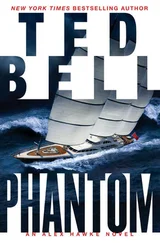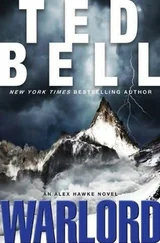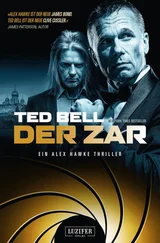Ted Bell - Tsar
Здесь есть возможность читать онлайн «Ted Bell - Tsar» весь текст электронной книги совершенно бесплатно (целиком полную версию без сокращений). В некоторых случаях можно слушать аудио, скачать через торрент в формате fb2 и присутствует краткое содержание. Жанр: Триллер, на английском языке. Описание произведения, (предисловие) а так же отзывы посетителей доступны на портале библиотеки ЛибКат.
- Название:Tsar
- Автор:
- Жанр:
- Год:неизвестен
- ISBN:нет данных
- Рейтинг книги:4 / 5. Голосов: 1
-
Избранное:Добавить в избранное
- Отзывы:
-
Ваша оценка:
Tsar: краткое содержание, описание и аннотация
Предлагаем к чтению аннотацию, описание, краткое содержание или предисловие (зависит от того, что написал сам автор книги «Tsar»). Если вы не нашли необходимую информацию о книге — напишите в комментариях, мы постараемся отыскать её.
Swashbuckling counter Spy Alex Hawke returns in New York Times bestselling author Ted Bell's most explosive tale of international suspense to date.
There dwells, somewhere in Russia, a man so powerful no one even knows his name. His existence is only speculated upon, only whispered about in American corridors of power and CIA strategy meetings. Though he is all but invisible, he is pulling strings – and pulling them hard. For suddenly, Russia is a far, far more ominous threat than even the most hardened cold warriors ever thought possible.
The Russians have their finger on the switch to the European economy and an eye on the American jugular. And, most importantly, they want to be made whole again. Should America interfere with Russia's plans to "reintegrate" her rogue states, well then, America will pay in blood.
In Ted Bell's latest pulse-pounding and action-packed tour de force, Alex Hawke must face a global nightmare of epic proportions. As this political crisis plays out, Russia gains a new leader. Not just a president, but a new tsar, a signal to the world that the old, imperial Russia is back and plans to have her day. And in America, a mysterious killer, known only as Happy the Baker, brutally murders an innocent family and literally flattens the small Midwestern town they once called home. Just a taste, according to the new tsar, of what will happen if America does not back down. Onto this stage must step Alex Hawke, espionage agent extraordinaire and the only man, both Americans and the Brits agree, who can stop the absolute madness borne and bred inside the modern police state of Vladimir Putin's 'New Russia'.
There dwells, somewhere in Russia, a man so powerful no one even knows his name. His existence is only speculated upon, only whispered about in American corridors of power and CIA strategy meetings. Though he is all but invisible, he is pulling strings – and pulling them hard. For suddenly, Russia is a far, far more ominous threat than even the most hardened cold warriors ever thought possible.
The Russians have their finger on the switch to the European economy and an eye on the American jugular. And, most importantly, they want to be made whole again. Should America interfere with Russia's plans to "reintegrate" her rogue states, well then, America will pay in blood.
In Ted Bell's latest pulse-pounding and action-packed tour de force, Alex Hawke must face a global nightmare of epic proportions. As this political crisis plays out, Russia gains a new leader. Not just a president, but a new tsar, a signal to the world that the old, imperial Russia is back and plans to have her day. And in America, a mysterious killer, known only as Happy the Baker, brutally murders an innocent family and literally flattens the small Midwestern town they once called home. Just a taste, according to the new tsar, of what will happen if America does not back down. Onto this stage must step Alex Hawke, espionage agent extraordinaire and the only man, both Americans and the Brits agree, who can stop the absolute madness borne and bred inside the modern police state of Vladimir Putin's 'New Russia'.












